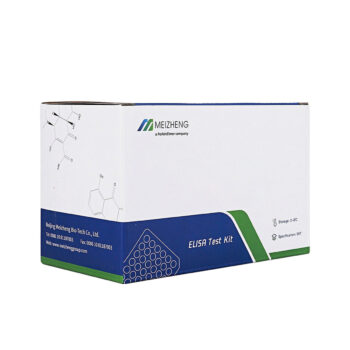Unmasking Toxic Threats: The Power of Mycotoxin ELISA Test Kits

In the world of food safety and health, mycotoxins pose a significant threat that often goes unnoticed. These toxic compounds, produced by certain molds, can contaminate a wide array of agricultural products, potentially leading to serious health issues for humans and animals alike. As the importance of food safety continues to gain recognition, the need for effective detection methods becomes paramount. This is where Mycotoxin ELISA test kits come into play, offering a reliable solution for identifying harmful mycotoxins in food and feed samples.
Mycotoxin ELISA test kits have emerged as a powerful tool for businesses, researchers, and regulatory agencies alike. These kits leverage the sensitivity of enzyme-linked immunosorbent assays to quickly and accurately detect and quantify mycotoxins. With user-friendly protocols and the ability to process multiple samples simultaneously, ELISA kits are revolutionizing the approach to mycotoxin testing. By masking the threats these toxins pose, they empower stakeholders to ensure the safety and quality of our food supply.
Understanding Mycotoxins
Mycotoxins are toxic compounds that are naturally produced by certain molds and fungi. These substances can contaminate a wide range of agricultural products, including grains, nuts, fruits, and vegetables. When conditions are favorable, molds can proliferate and produce mycotoxins, posing a significant risk to both human and animal health. The presence of mycotoxins in food and feed can lead to serious health issues, including acute poisoning, immune deficiency, and long-term effects such as carcinogenicity.
The types of mycotoxins vary widely, with some of the most common being aflatoxins, ochratoxin A, fumonisins, and zearalenone. Each type of mycotoxin has its own unique properties and toxicological profiles, affecting different systems within the body. For example, aflatoxins are primarily associated with liver toxicity, while fumonisins can lead to neurological damage. Understanding the specific risks associated with each mycotoxin is crucial for developing effective testing and mitigation strategies.
Effective detection of mycotoxins is essential to ensure food safety and protect public health. Mycotoxin ELISA test kits offer a reliable and efficient means of identifying these harmful compounds in various food products. By utilizing immunological techniques to detect specific mycotoxin molecules, these test kits provide results that can help producers, manufacturers, and regulators take necessary actions to eliminate contamination and minimize health risks associated with mycotoxins.
How ELISA Test Kits Work
ELISA test kits operate on a straightforward yet effective principle centered around the detection of specific molecules, in this case, mycotoxins. The process begins with the preparation of the sample, which may include various food products, grains, or environmental samples. Once the sample is collected, it is introduced into a well coated with antibodies designed to bind specifically to the target mycotoxin. https://c.com/ is crucial, as it ensures that only the relevant toxins are captured for analysis.

After the sample is added, the wells are incubated to allow sufficient time for the mycotoxins to bind to the antibodies. Following incubation, a washing step is executed to remove any unbound substances, which helps to reduce background noise and increases the accuracy of the test results. Subsequently, a secondary antibody that is conjugated to an enzyme is added. This secondary antibody also binds to the mycotoxin, amplifying the signal and enhancing detection capabilities.
The final step involves adding a substrate that reacts with the enzyme linked to the secondary antibody. This reaction produces a measurable signal, often in the form of a color change, indicating the presence and concentration of the mycotoxin in the original sample. The resulting signal can be quantified using a spectrophotometer, allowing for precise measurements. This reliable methodology makes ELISA test kits a powerful tool in the identification and quantification of mycotoxins, aiding in ensuring food safety and quality.
Benefits of Using https://mzfoodtest.com/product-category/technologies/elisa-test-kits-technologies/ mycotoxin-elisa-test-kits/">Mycotoxin ELISA Test Kits
Mycotoxin ELISA test kits offer a reliable and efficient means of detecting toxic compounds in various food products. One of the standout benefits is their high sensitivity and specificity, allowing for accurate identification of specific mycotoxins. This precision is crucial for ensuring food safety, protecting consumers from potential health hazards associated with contaminated products.
Another significant advantage is the ease of use associated with these test kits. They typically come with user-friendly protocols that do not require extensive laboratory equipment or expertise. This accessibility makes it feasible for businesses, including small-scale producers, to conduct their own testing and ensure compliance with safety regulations, ultimately safeguarding their brand reputation and consumer trust.

Additionally, mycotoxin ELISA test kits often provide rapid results, enabling quick decision-making in food production and distribution. Faster testing allows companies to respond promptly to contamination issues, reduce waste, and maintain the quality of their products. This efficiency not only protects public health but also enhances operational effectiveness, making these test kits an invaluable tool in the fight against mycotoxin contamination.
